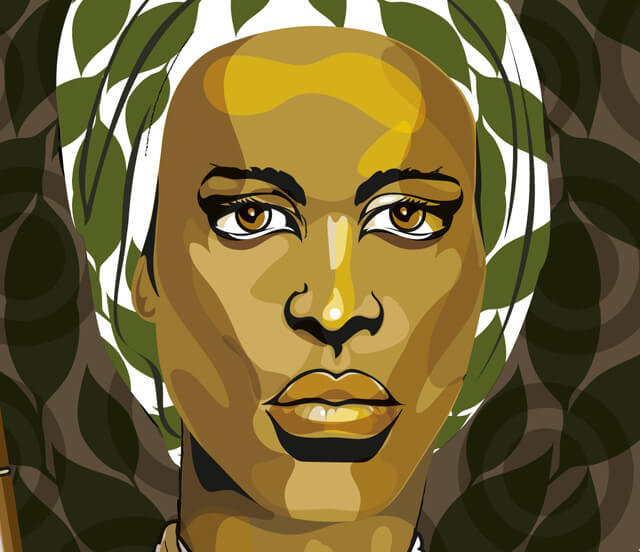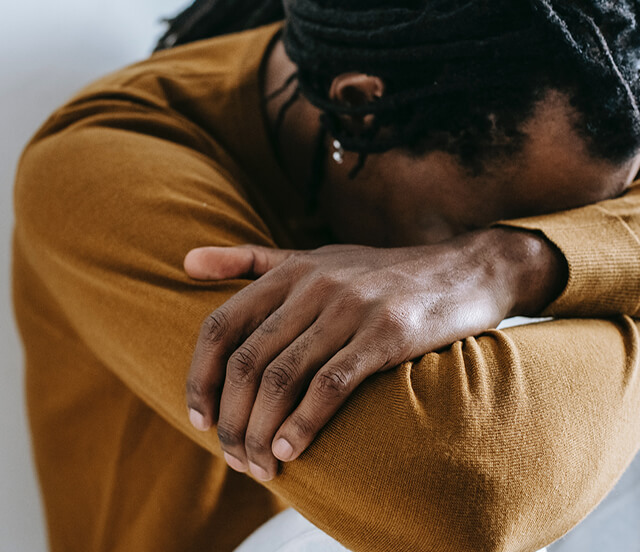by Sibahle Magadla
With the recent passing of Chadwick Boseman, I have been reflecting more lately on icons of African descent who have changed the world. Of course, we have a lot of popular names (e.g., Winnie and Nelson Mandela, Thomas Sankara, Miriam Makeba, and Aliko Dangote.) How about we dig deeper and profile some hidden figures?
How about we dig deeper and profile some hidden figures?

Queen Nanny of the Windward Maroons of Jamaica
(1686-1733)
Queen Nanny was a Jamaican political leader, military strategist and Obeah woman. Originally born in Ghana, Queen Nanny led the Windward Maroons (maroons were formerly enslaved Africans who escaped to freedom and built communities outside of formal slave societies) in a successful war against the British, resulting in a negotiated land agreement for the Windward Maroon community.
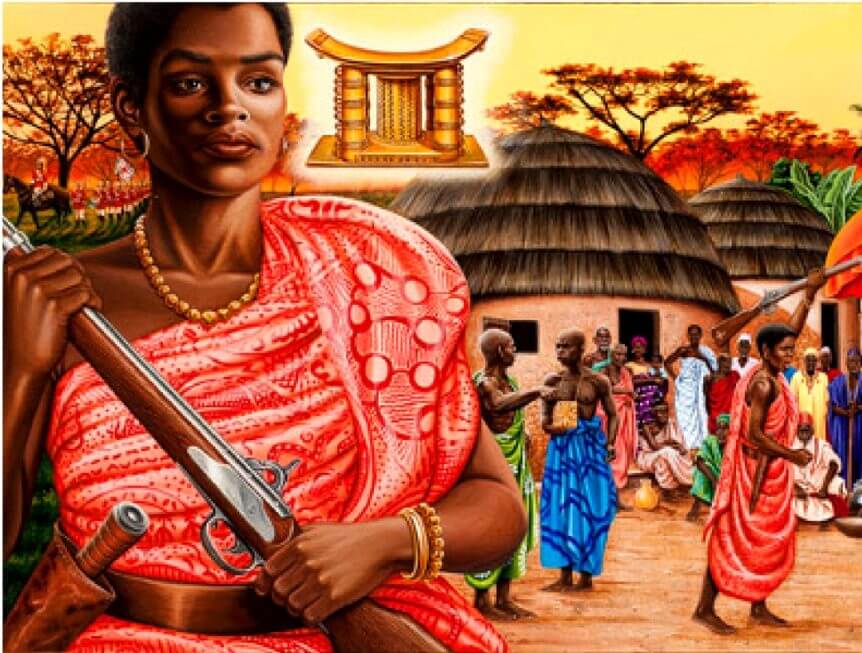
Yaa Asantewaa
(1863-1923)
Yaa Asantewaa was an influential Ashanti queen who rose up to lead an army against the British in Ghana. Her region was under attack and the Ashanti King, Asantehene Prempeh I, had been sent into exile. When the British governor demanded that the Ashanti people’s most treasured possession – the Golden Stool – be handed over, Yaa Asentewaa stepped forward and called on her people (women included) to rise up. Through her leadership, the British never got the Golden Stool! She demanded the return of the King when many others considered surrender. Though she was eventually defeated and exiled to the Seychelles, Yaa Asantewaa’s bravery and military fortitude exemplified the uniqueness of female leadership in anti-colonial processes.
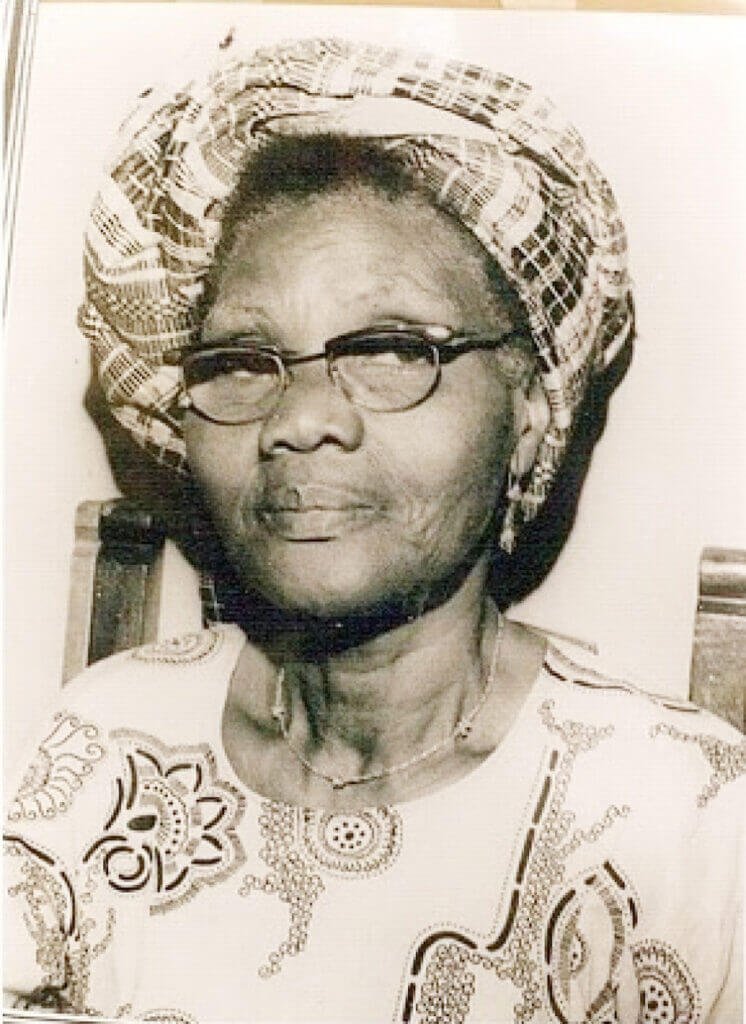
Funmilayo Ransome-Kuti (1900-1978)
The mother of the prolific musician and activist Fela Kuti, Funmilayo Ransome-Kuti was a pioneering African feminist, social activist, educator and anti-colonial freedom fighter. Founder of the Nigerian Woman’s Union, which became the Federation of Nigerian Women’s Societies in 1953, Funmilayo Ransome-Kuti organized tax strikes against economic policies negatively affecting women, organized against the exploitation of women in business, and called for an end to colonial rule.
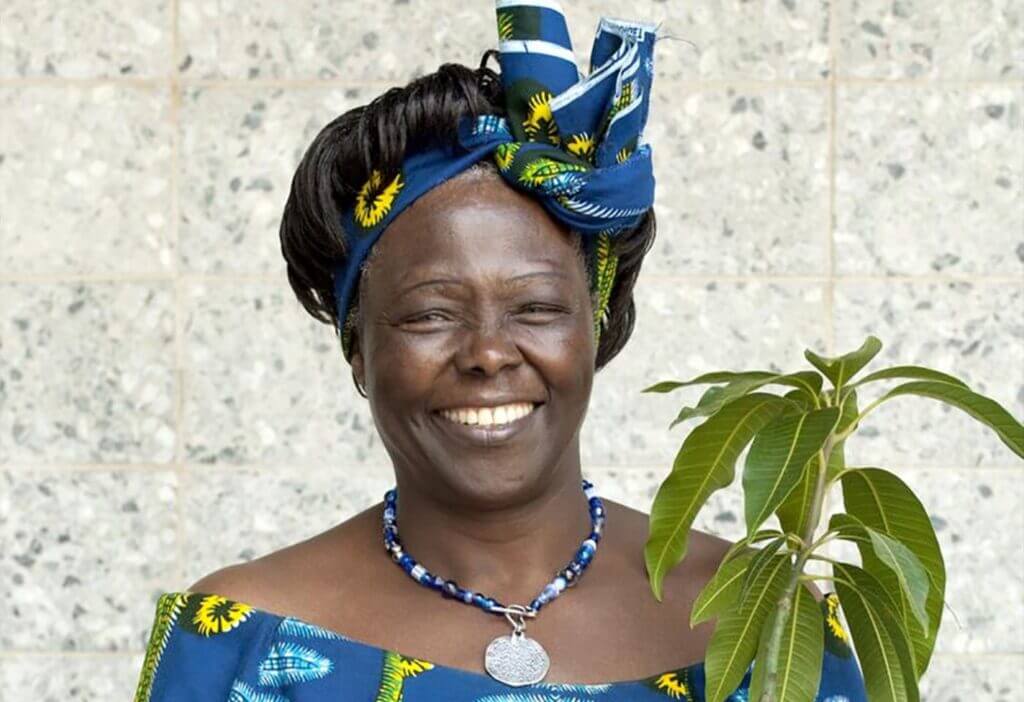
Wangari Maathai
(1940-2011)
Wangari Maathai (1940-2011) was a Kenyan scientist, professor, and environmental and political activist. She founded the Green Belt Movement, a community initiative that seeks to empower women through civic education and environmental stewardship. She was also the first woman in East or Central Africa to earn a doctorate degree. In 2004, she was awarded the Nobel Peace Prize for her work on sustainable development, democracy and peace, becoming the first African woman and first environmentalist to receive this prize.
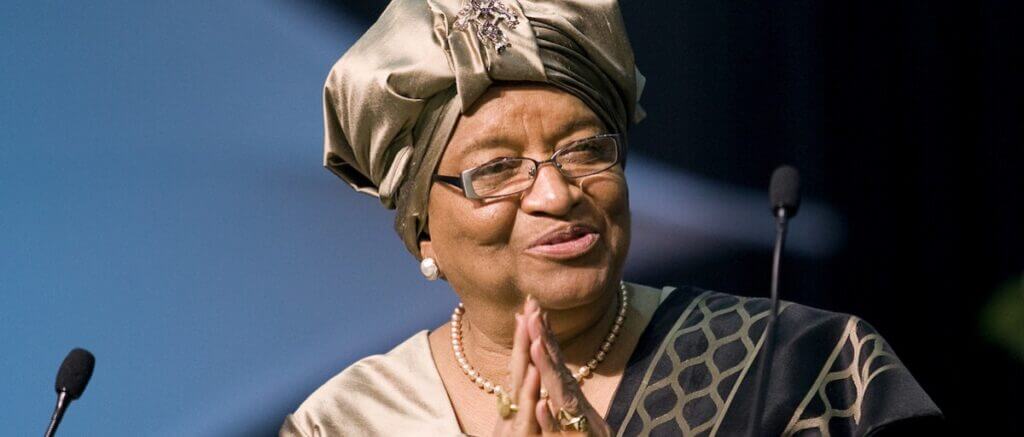
Ellen Johnson Sirleaf
(1938-)
Ellen Johnson Sirleaf (1938-) took office as the president of Liberia in January 2006, becoming the first elected woman head of state in Africa. She signed a Freedom of Information bill (the first of its kind in West Africa) and made reduction of the national debt a cornerstone of her presidency. To investigate crimes committed during Liberia’s civil war, she established a Truth and Reconciliation Commission. Consequently, she became a global icon with her commitment to fighting dictators, corruption, and poverty through empowerment of women and girls.
Indeed, Africa has been influenced by phenomenal women. Let’s celebrate them during this heritage month!
To learn more about Africa and her heroes, follow the links below:
https://www.sahistory.org.za/
https://www.bbc.co.uk/programmes/m000ch8l/episodes/guide
https://www.nationalgeographic.org/topics/africa/?q=&page=1&per_page=25
https://www.youtube.com/c/BBCAfrica/videos
https://www.youtube.com/watch?v=B_a1WS5ncDk

